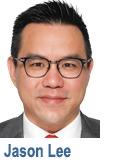On September 19, Hong Kong heads to the polls to vote for its Election Committee members, the very first step in improving Hong Kong's electoral system following a decision passed in May. The new electoral college will not only be responsible for electing the Chief Executive, but this time, also choosing 40 members of and nominating all candidates for the 90-member Legislative Council.
The Beijing-led reform did not come without its detractors. Many observers accused the central government of exercising excessive control over Hong Kong elections and even criticized the reform as a “democratic regression”.
Those who hold such views may need to take a step back, look at the bigger picture and the essence of democracy -- to bring about effective and good governance, and avoid chaos in society. It is only through quality politics that are we able to achieve such a goal.
In summary, this move aims to achieve that goal in three aspects.

First, this electoral reform will end populist politics. The Hong Kong 2019 story reflected exactly how destructive it can be to the city’s fate. The movement was ignited by people’s doubts about the extradition bill but was hijacked by malicious politicians and the forces behind them. They made every effort to fuel hatred and provoke violence through a torrent of lies and incitements. Hong Kong was therefore pushed into an abyss of chaos - a situation that all who love Hong Kong were determined should come to an end.
With newly added seats to be filled by indirect polls to represent different sectors of society, populist election tactics will no longer be effective. Electors from their categories understand how the city’s development is operated and what their represented sectors really need
This is not only a Hong Kong problem, but a global one. Just look at Brexit or the rise of Donald Trump, not to mention the situation in Libya and Afghanistan. Confrontation and disorder have significantly altered these countries. Distinguished French political scientist Catherine Fieschi, the author of Populocracy: The Tyranny of Authenticity and the Rise of Populism, would agree. She studied how populist politicians “succeeded” in many countries and the damaging ripple effect it had on the world.
The world has mostly realized the destructive nature of populism but has yet to find a solution. Hong Kong’s answer is a valuable step forward. By establishing the Candidate Eligibility Review Committee, the city will set a higher bar for politicians, by which those who could harm national security or social stability would be vetted.
ALSO READ: HK: Election Committee hopefuls set to seek patriots
Meanwhile, with newly added seats to be filled by indirect polls to represent different sectors of society, populist election tactics will no longer be effective. Electors from their categories understand how the city’s development is operated and what their represented sectors really need.
Such arrangements would go towards easing people’s psychological trauma due to the prolonged riots, lead Hong Kong away from mob rule and push forward solid development in the city.
Second, the electoral reform enables wider representation. Previously, some sectors had been neglected in Hong Kong politics, including the grassroots, youth and small businesses.
With the new election law, we can look forward to many more capable individuals willing to devote themselves to genuine public service, more substantial debates and more tangible results for the city’s development
Indeed, Hong Kong had long been a commercial city “ruled” by the rich. The business circle has a disproportionate voting power in deciding the city’s policies. That’s one of the reasons why the problems of housing, poverty and elderly care are severe and social mobility has become stagnant. And these are in fact, what added fuel to the fire in 2019.
With the reform, the above-mentioned sectors, which are more vulnerable in a capitalist society, will have their say in the city’s decision-making bodies.
Moreover, not only national security was at stake during the 2019 unrest, people from the Chinese mainland were also targeted by violent mobs. How could a city become a petri dish of independence notions? How could blatant discrimination against Chinese compatriots happen in a Chinese city? It is scandalous and must end now. With the seats given to national organizations in the Election Committee, Hong Kong will be able to reappraise the nation’s role in its future.
Third, the reform would end confrontation and bring about good governance. Hong Kong has long been trapped in political wrangling. Constant filibustering in the legislature and endless ideological disputes have immobilized the city’s development. With confrontational politics in place, elections were constricted to either supporting or opposing the government, while real social issues fell by the wayside.
Genuine political talent ended up discouraged from joining such a futile battlefield and consequently the city was left with “election experts” rather than problem-solvers.
READ MORE: HK opens era of 'good governance'
Hong Kong is in urgent need of reformists to solve its deep-rooted social problems. Now, with the new election law, we can look forward to many more capable individuals willing to devote themselves to genuine public service, more substantial debates and more tangible results for the city’s development.
Taking into consideration the above-mentioned points, I sincerely call on all skeptics to rethink their idea of democracy -- quality politics and good governance -- a future that all Hong Kongers desire.
Undoubtedly, any new rules will not always be perfect, and Hong Kong will need to optimize them during the implementation process. But at least for now, we are moving in the right direction. Finally, after all these wasted years, there is hope in the shape of reform.
The author is a member of the Guangdong Province Zhongshan City Committee of the CPPCC and treasurer of The Hong Kong Y.Elites Association.


